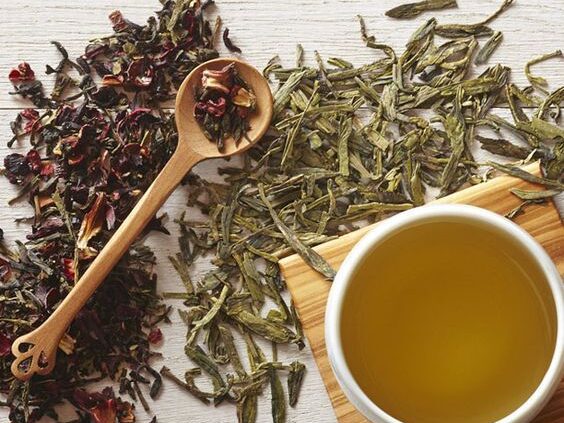Why Diet Matters With IC – A Simple Guide to Trigger Foods
Table of Contents
Why does diet matter for IC?
Interstitial cystitis (IC), also known as bladder pain syndrome, is a chronic condition that can make daily life challenging. For many, diet is a major piece of the puzzle.
Certain foods can soothe the bladder, while others may contribute to irritated bladder lining. Learning which foods your body tolerates best can help you manage symptoms and regain confidence in your daily routine.
How does diet impact IC symptoms?
While the exact cause of IC is still being researched, inflammatory imbalance and a change in the bladder lining (known as the GAG layer) appear to be involved. Certain foods and drinks can contribute to irritating this lining, triggering flares and worsening pain.
When irritants contact the bladder wall, they can activate nerve endings and molecules like histamine, heightening bladder sensitivity. Avoiding or limiting these foods can help reduce flare frequency and intensity.
That said, IC is highly individual. What causes discomfort for one person may be well tolerated by another. Keeping a food diary is one of the best ways to identify your unique patterns and triggers.

What are the most common trigger foods for IC?
While triggers can vary, the following categories are most commonly reported by people with IC:
Acidic Foods
Citrus fruits (oranges, grapefruits, lemons, limes) and tomato-based products (sauces, ketchup, salsa) are frequent irritants. The acid content can irritate the bladder lining and result in pain.
Try gentler alternatives such as pears, blueberries, apples, or tomato-free pasta sauces.
Caffeinated Drinks
Coffee, black tea, and energy drinks can increase bladder urgency and discomfort because caffeine acts as both a diuretic and a stimulant.
If you can’t go without your morning ritual, try herbal teas like chamomile or peppermint, or experiment with decaf options.
Carbonated Beverages
Sodas, sparkling waters, and even champagne can cause irritation due to carbonation and acidity. Flat beverages like water or herbal teas are often better tolerated.
Spicy Foods
Hot peppers, chili powder, and strong sauces can overstimulate sensitive bladder tissues. Swap them for herbs like basil, parsley, oregano, or dill for gentle, flavorful meals.
Artificial Sweeteners
Aspartame, sucralose, and saccharin (commonly found in diet sodas or sugar-free snacks) are known irritants for many with IC. Choose natural options such as maple syrup, or small amounts of honey instead.
Alcohol
Alcohol may dehydrate the body and alter the bladder’s pH, both of which may trigger symptoms. Opt for an IC-friendly mocktail made with still water, cucumber, and allulose or honey.
Try our Holiday Mocktail for Immune and Vaginal Health for a nourishing alternative.
Processed and Preserved Foods
Packaged snacks, deli meats, and canned soups often contain preservatives and artificial additives that can also irritate the bladder. Focus on fresh, whole ingredients and home-cooked meals whenever possible.
How can I find my personal food triggers?
Every case of IC is different, so personalization is key. Here’s how to identify your own bladder triggers:
- Keep a food diary: Record what you eat and any symptoms you experience. Over time, patterns will emerge.
- Try an elimination diet: Remove common triggers for 2–3 weeks, then reintroduce one at a time to test tolerance.
- Work with a specialist: A dietitian or naturopathic doctor familiar with IC can help you stay balanced while identifying triggers.
This approach helps you feel more in control and reduces the anxiety around eating.
What foods are generally safe for people with IC?
Many individuals with IC find relief by focusing on simple, soothing foods that support with bladder irritation:
- Lean Proteins: Chicken, turkey, eggs, tofu
- Non-Citrus Fruits: Blueberries, pears, watermelon
- Vegetables: Cucumbers, zucchini, green beans, carrots
- Grains: Oats, quinoa, rice, gluten-free bread
- Dairy Alternatives: Almond or oat milk (if tolerated)
Hydration is also essential, but plain water isn’t your only option. Herbal teas or infused water with bladder-friendly fruits like cucumber and blueberry can make it more enjoyable.
Discover more on anti-inflammatory eating in our Strong Foundations Grocery Guide.

Are there other factors that can make IC symptoms worse?
Yes. While diet plays a central role, other factors like stress, dehydration, and tension can also affect bladder comfort.
Gentle lifestyle habits can make a big difference:
- Stay hydrated with mineral-rich, clean water throughout the day
- Practice gentle movement like walking or yoga
- Manage stress with mindfulness, deep breathing, or therapy
Together, these habits help calm both the body and nervous system, creating an internal environment less prone to flares.
How can I take back control with IC?
Managing IC doesn’t have to mean restriction or frustration. It’s about developing a deeper awareness of how your body responds to different foods and building a plan that supports healing.
Start by making small, manageable changes. Track your triggers, experiment with IC-friendly meals, and celebrate every improvement. Over time, these shifts add up to fewer flare-ups, more confidence, and a stronger connection to your body’s needs.

References:
- American Urological Association (AUA). Diagnosis and Treatment of Interstitial Cystitis/Bladder Pain Syndrome (2022 Update). AUA Guideline
- Hanno, P. et al. (2023). Bladder Pain Syndrome: Evidence-Based Dietary Management. PubMed
- University of Washington. Bladder-Friendly Diet for Interstitial Cystitis. UW Medicine Health Library
- IC Network. Diet and IC – The Most Common Food Triggers. IC Network
Share: